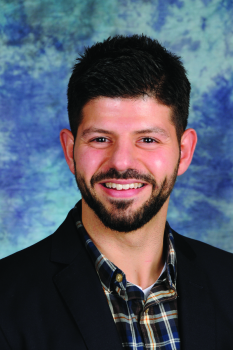 BY DR. LUIGI NALLI
BY DR. LUIGI NALLI
The human body can take on many different positions. The body positions that we tend to assume through intention and our habits are known as our posture. Posture is however predetermined by the structure of our bodies. Let’s use the spine as an example to clarify this point. Naturally, the structure of the spine has three curves for the purpose of acting like a spring against gravity. The top and bottom curves are known as a lordosis and the middle curve is kyphosis. When we sit for long periods, we tend to slouch, which causes those natural curves to become accentuated and we often term this ‘poor posture’.
Good or ideal body posture is when optimal alignment is achieved such that all the joints and muscles are balanced and in a stress- free state. Once we offset this balance and create ‘poor posture’ we therefore add stress to the muscles and joints of the body. It is that constant stress that will eventually lead to pain in that area of the body.
Posture applies to both static and dynamic movements. Static postures include things such as the way you sleep or sit and dynamic posture refers to posture during movements, like walking or running.
Both types of postures require that we somehow maintain a healthy balance of the muscles and joints or we risk succumbing to pain.
Sometimes we are born with ‘poor posture’ as part of our body structure. An example of this is scoliosis, which is an abnormal curvature of the spine. Often times those with scoliosis can develop chronic back pain due to the natural imbalances that the muscles and joints undergo. These issues are often congenital (to be born with) or idiopathic (unknown cause).
Postural assessment is a diagnostic method used by healthcare professionals to evaluate a person’s posture. These professionals are trained on what the ideal posture for all body segments and types are, and how to determine where a person has underlying postural issues. Based on that assessment they will be able to determine if the postural issue is something created by your habits and intentions or if it something part of your body. This assessment may include further advance studies like x-rays if the professional feels that it is required.
Whether your postural issue is determined to be because of habits or part of your body there are things to help with both. The professional will give advice and recommendations towards what therapeutic interventions can help. Often times those interventions include things like pain management through: medication, bracing, assistive devices and therapy and in very serious cases surgery might need to be considered. Prevention of pain and worsening of the issues is often achieved through rehabilitative exercises and homecare focused on a combination of strengthening, stretching and endurance activities for different muscles and joints.
It is very important to realize that making modifications to your posture is not as easy as ‘just sitting up straight’. In health care what we tend to notice is that when patients are making their own adjustments it can actually cause worsening of the issue. The reason being is that without the proper understanding of anatomy it is difficult for the everyday person to realize where all the muscles and joints are in a true stress-free state of tension.
Dr. Luigi Nalli is a licensed Chiropractor with a special interest in pain management. He is a graduate of both the University of Toronto and the Canadian Memorial Chiropractic College and has further certifications from McMaster University. He is also the Clinical Director of Humber Family Chiropractic, Rehabilitation & Wellness, a multidisciplinary clinic with dozens of healthcare professionals dedicated to pain management and overall wellness. The centre’s main office is located directly across from William Osler’s Etobicoke General Hospital and is open 7 days a week. The rehabilitation centre is affiliated with and next door to Fitness 365, a popular fitness facility open 365 days a year and 24 hours per day. To contact the clinic or to book an appointment please call 416-744-7900 or visit www.humber-family.com.













